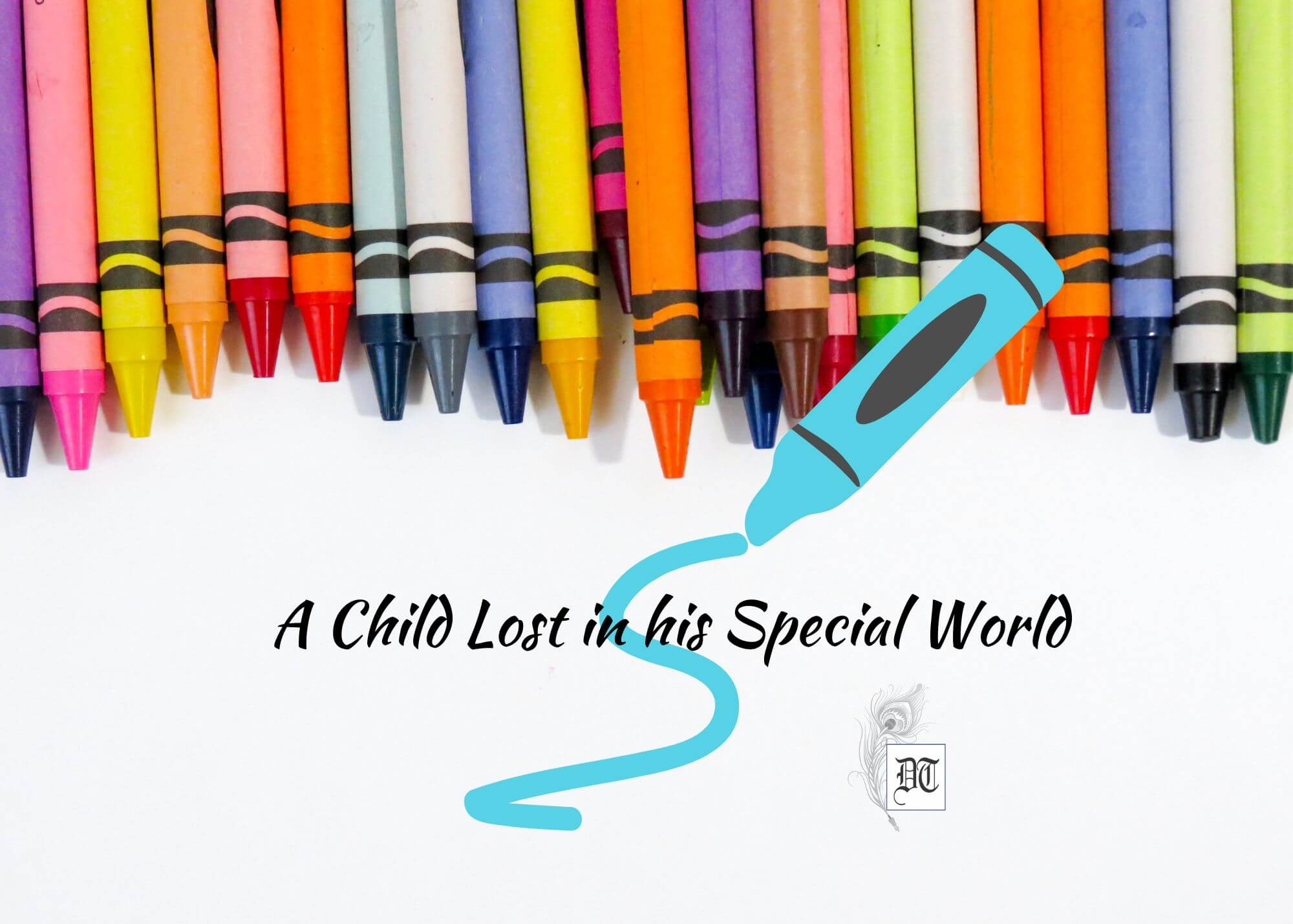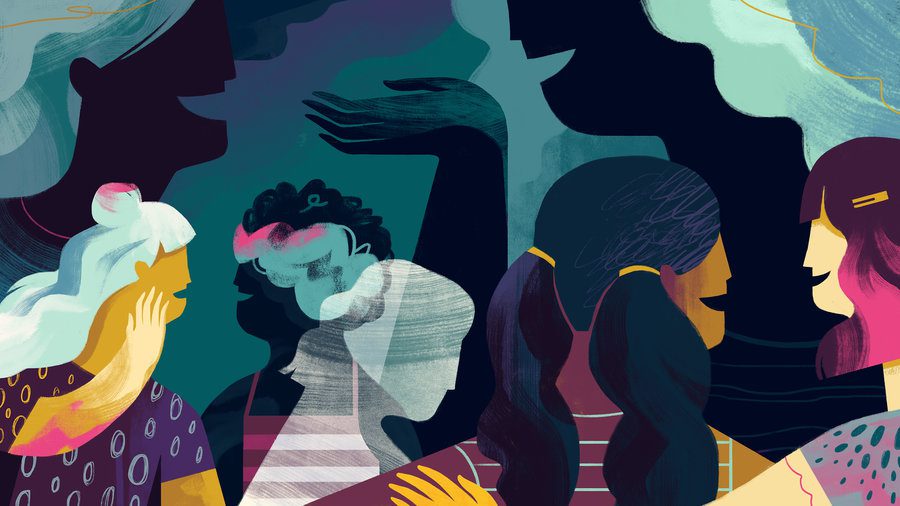Joanna shares her experiences of staying with a younger autistic brother, Reuel, for Different Truths. She tells us that the smallest triggers, things neuro-typical people would not even notice, act upon him like bomb-shells, triggering a sensory overload that either causes him to shut down or sends him into a panicked frenzy where he hurts himself and the people around him. Autism has no cure.
I began writing this article in a mood of despair, hopelessness and extreme pessimism, akin to the feelings I experience on particularly terrible hair days, only far, far worse. Now, a few minutes later, I return with a singing heart. If there was a field nearby, I would skip in it, like a new born lamb, or some other frolicsome herbivore. Allow me to present to you a detailed timeline of the events that caused these sea-changes.
 Earlier this evening, in accordance with my new year resolutions, I was in the exercise room, getting ‘ripped to the core’, as the Youtube video assured me I was, when the smell of smoke disturbed me mid-squat. Deciding that, in the event that the house was on fire, the priority of rock-hard abs was slightly diminished, I followed the scent to its source, which turned out to be my room. Inside my room I found: a pile of ashes on my desk and bed, a singed copy of the library book I had taken out the week before, ‘The Feynman Lectures on Physics’, and, in a strange twist on ‘Nero fiddling while Rome was burning’, my little brother, standing among the dismembered remains of the shoulder pad I use for my violin.
Earlier this evening, in accordance with my new year resolutions, I was in the exercise room, getting ‘ripped to the core’, as the Youtube video assured me I was, when the smell of smoke disturbed me mid-squat. Deciding that, in the event that the house was on fire, the priority of rock-hard abs was slightly diminished, I followed the scent to its source, which turned out to be my room. Inside my room I found: a pile of ashes on my desk and bed, a singed copy of the library book I had taken out the week before, ‘The Feynman Lectures on Physics’, and, in a strange twist on ‘Nero fiddling while Rome was burning’, my little brother, standing among the dismembered remains of the shoulder pad I use for my violin.
Following the advice of the Zen blog I occasionally read, I took deep breaths in and out. I meditated for a while in the crane pose. I folded origami butterflies. When I decided that my emotions were under control, I once again surveyed the wreckage. All this chaos – caused by a few minutes of inattention and intense cardio. I tracked the little arsonist down – and found him uncorking a bottle of cleaning liquid – an unusual beverage he has a history of consuming.
My little brother, Reuel, is severely autistic and non-verbal. My experience of living with him has been  colourful – from memories of him spitting soup in graceful arcs onto the shoes of snooty waiters at high-end restaurants, to running away at the age of three, only to be returned, hours later, by a truck-full of construction site workers. It has not been without its challenges. He is thirteen now, but, luckily, appears much younger. He stims, has public meltdowns, and chirps away in a language of his own invention, which means that our family has had to grow accustomed to being out of place in many social situations. His education is difficult – and expensive. The government of India, of course, has been a non-entity throughout the entire process.
colourful – from memories of him spitting soup in graceful arcs onto the shoes of snooty waiters at high-end restaurants, to running away at the age of three, only to be returned, hours later, by a truck-full of construction site workers. It has not been without its challenges. He is thirteen now, but, luckily, appears much younger. He stims, has public meltdowns, and chirps away in a language of his own invention, which means that our family has had to grow accustomed to being out of place in many social situations. His education is difficult – and expensive. The government of India, of course, has been a non-entity throughout the entire process.
Life with disability is difficult – and I have to constantly remind myself that it is even more difficult for Ru than it is for me – he has been thrust into a world both incomprehensible and hostile, forced to comply with rules that seem entirely without context, and always changing.
The smallest triggers, things neuro-typical people would not even notice, act upon him like bomb-shells, triggering a sensory overload that either causes him to shut down or sends him into a panicked frenzy where he hurts himself and the people around him. Autism has no cure.
The knowledge of all these things is a constant source of stress, and the reason for my bleak mood as I sat down to write this article. As soon as I’d settled down, I heard sounds from within my room and went to investigate. Reuel was sitting quietly on the bed, twirling one of the pieces of my shoulder pad. On a whim, I put a piece of paper in front of him and a pen in his hand.
“Look, Reuel,” I said, grabbing his hands and forcing his attention to me, “Eyes.” I traced the outline of my right eye with a finger.
“Eyes,” he repeated, (this is known as echolalia), beginning to do the same to his eye, except with an open sketch pen.
“No,” I said, grabbing his hand, “Do it on the paper.”
I gestured, and then, to my astonishment, he drew a rough circle on the paper.
“Yes!” I said, “Eye! Very good! Try the other one!” I traced my left eye with my finger, repeating ‘eye’. He repeated after me, traced his left eye with a finger, and then drew another circle on the paper.
I was astounded. Reuel has drawn before – but previously he’s only made copies of simple shapes. This was an unbelievable step forward – a symbolic representation of a three-dimensional object. This was his first original drawing – a rough sketch of my face.
That’s what living with autism is like – terrifying, exasperating, often very sad, but also wonderful and amazing. That’s why, if I ever did become a development journalist, I know what my subject would be. It’d be pretty cool to be – in a literal and metaphorical sense – a voice for the voiceless.
Pix from Net



 By
By


 By
By